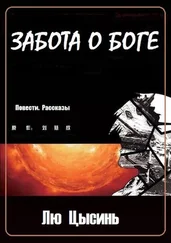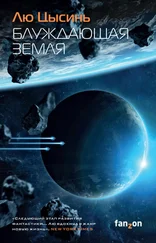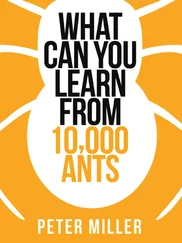Cixin Liu
of ANTS and DINOSAURS
TRANSLATED BY ELIZABETH HANLON

If the entire history of the Earth were condensed into a single day, one hour would equate to 200 million years, one minute to 3.3 million years and one second to 55,000 years. Life would appear as early as eight or nine o’clock in the morning, but human civilisation would not emerge until the last tenth of the last second of the day. From the morning that philosophers held the first ever debate on the steps of a temple in Ancient Greece… from the day slaves laid the first foundation stone of the Great Pyramid… from the minute that Confucius welcomed his first disciple into the candlelit gloom of his thatched hut… right up until the moment you turned the first page of this book, only one-tenth of a tick of the clock would have elapsed.
But in the hours before this tenth of a second, what was life on Earth doing? Was every single living being doing nothing but swimming, roaming around, breeding and sleeping for… well… billions of years? Was every other organism universally and unremittingly stupid – for aeon after aeon? Of the countless branches on the tree of life, was our small twig really the only one to have been graced with the light of intelligence? It seems unlikely.
Nevertheless, for a germ of intelligence to grow into a great civilisation is no easy feat. It requires that many conditions be met simultaneously, a one-in-a-million coincidence. Nascent intelligence is as precarious as a tiny flame in an open field. It’s liable to be snuffed out in the slightest breeze, and even if it does catch and manages to set the surrounding weeds alight, the little fire will likely find its path blocked by a stream or an empty clearing, causing it to die out without so much as a whimper. Should it somehow muster sufficient energy and spread like wildfire, a heavy rainstorm will probably extinguish it. All in all, the chances of a tiny flame becoming a raging conflagration are exceedingly slim. And so we can assume that, through the endless night of antiquity, budding intelligences flickered on and then off again like the brief, brilliant twinkles of fireflies.
At approximately twenty minutes to midnight – that is, approximately twenty minutes before our arrival – two flames of intelligence appeared on Earth. We might call them bright sparks. This twenty-minute period was no mere flash in the pan, for it equates to more than 60 million years. It’s an era unimaginably distant from ours. Humanity’s ancestors would not emerge for another few tens of millions of years. There were no humans back then, and even the continents were shaped very differently than they are today. On the geologic timescale, it was the Late Cretaceous period.
At that time, gigantic animals called dinosaurs inhabited Earth. There were many different types of dinosaurs, and most of them were ludicrously large. The heaviest weighed 80 tonnes, or as much as 800 people, and the tallest grew to thirty metres, the height of a four-storey building. They had already lived on Earth for 70 million years, which is to say that they appeared on Earth more than a billion years ago from now.
Compared with humanity’s several hundred thousand years on Earth, 70 million years is a very long time indeed. Time enough for the patter of raindrops drip-dripping steadily onto the same spot to carve great chasms out of the Earth; time enough for the gentlest of air currents blowing continuously against a mountain to level it. A species undergoing continual evolution over the same timespan, no matter how stupid to begin with, will become intelligent. And that’s what happened to the dinosaurs.
Over those millions of years, the dinosaurs discovered how to uproot the biggest trees, strip away the branches and leaves, and tie massive boulders to their ends with rattan. If the boulder was round or square, the tree became a hammer so humongous that it could have flattened one of our cars with a single blow. If the stone was flat, the dinosaurs used it as a megalithic axe. If the stone was pointed, they left intact some of the tree’s upper branches and crafted the trunk into a spear tens of metres long. The branches stabilised the spear during flight, and it flew like a dud missile.
The dinosaurs formed primitive tribes and dwelt in enormous caves they excavated themselves. They learnt to use fire, preserving the embers left by lightning strikes to illuminate their cavernous abodes and to cook food. For candles they co-opted entire pine trees several arm-spans around. They even wrote on the walls of their caves with the charred tree-trunks, recording in simple strokes how many eggs were laid yesterday and how many baby dinosaurs hatched today. More importantly, the dinosaurs already possessed a rudimentary language. To our ears, their conversations would have sounded like the whistling of trains.
At the same time, another species on Earth was showing signs of budding intelligence. Ants. They too had undergone a long process of evolution; in fact, by this point, the scale of ant society far outstripped that of dinosaur society. Ants had raised cities on every continent – some of these took the form of towering ant-hills, others were subterranean labyrinths – and many of their kingdoms had populations exceeding 100 million. These vast societies developed ingenious, tightly organised structures and hummed along to an efficient, systematic rhythm. The ants communicated with each other using pheromones – extremely sophisticated odour molecules that could convey the most detailed information – and this endowed them with a more advanced language than that of the dinosaurs.
However, although the first glimmers of intelligence had appeared in two species on Earth – one great and one small – both species were beset with fatal flaws, and their respective paths to civilisation were strewn with insurmountable obstacles.
The dinosaurs’ biggest disadvantage was that they lacked dexterous hands. Their huge, clumsy claws were matchless in a fight (one type of dinosaur, Deinonychus , had claws as sharp as sabres, which it used to disembowel its rivals) and could fashion crude tools, but they were incapable of performing fiddly tasks, manufacturing sophisticated implements or writing anything complicated. This was problematic because manual dexterity is a prerequisite for the development of civilisation. Only when a species has versatile hands can a virtuous circle form between brain evolution and survival activities.
The ants, conversely, could execute extraordinarily fiddly tasks, and they constructed the most intricate architecture both above ground and beneath it. But they lacked flair and a certain richness of thought. When a gathering of ants reached critical mass they exhibited a collective intelligence that was literal and unerring, much like a computer program. Guided by these programs, which developed over extended periods of time, ant colonies built city after labyrinthine city. Their society operated like a vast, precisely engineered piece of machinery, but separate an ant cog from that machine and you’d find that the individual’s thought processes were disappointingly shallow and pedestrian. This was the ants’ downfall, for the sort of creative thinking required to progress civilisation is the province of individuals – individuals like our Newton and Einstein, for example. The very nature of collective intelligence, its intrinsic principle of redundancy, is antithetical to the production of advanced thought; 100 million of us humans, though we might rack our brains as hard as we can, would still not come up with the three laws of motion or the theory of relativity.
Читать дальше
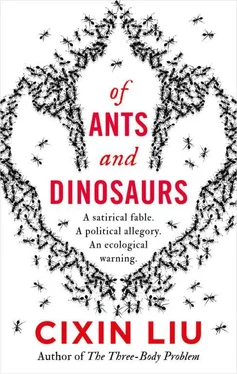

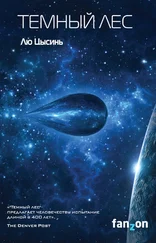
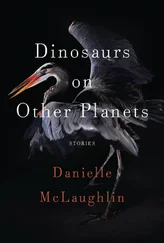
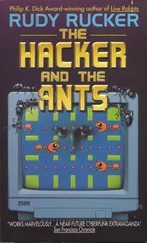

![Лю Цысинь - Эпоха сверхновой [litres]](/books/393110/lyu-cysin-epoha-sverhnovoj-litres-thumb.webp)
